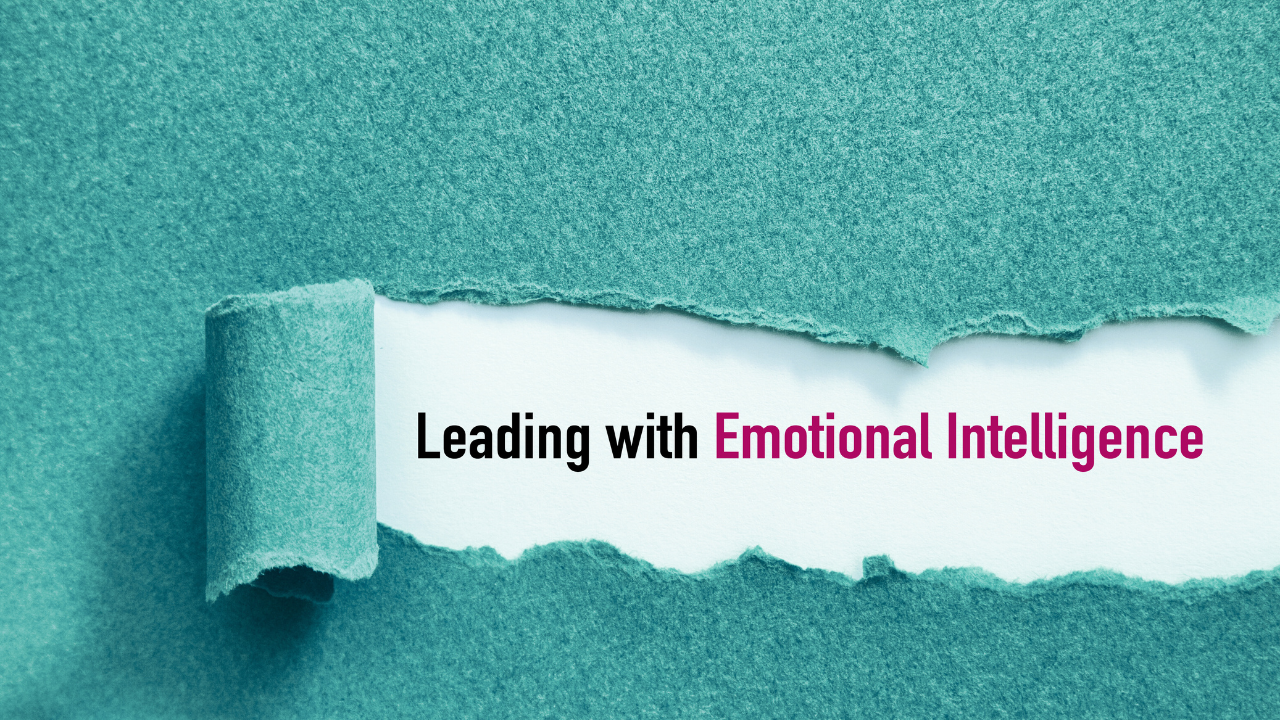
Emotional Intelligence: Why It Matters More Than Ever
Jul 06, 2025If you’ve ever walked into a room and immediately sensed the tension—or found yourself reacting before you even knew why—you’ve encountered emotional intelligence in action.
At its core, emotional intelligence (EI) is the ability to recognize and understand emotions—both our own and those of others—and to use that awareness to guide how we think, decide, and act. It’s not about being “nice” or winning approval. It’s about being aware.
Emotions are data. They tell us what matters, reveal what’s at risk, and shine a light on what we value most. Emotional intelligence is the practice of listening to those signals and choosing a response that aligns with our values, ethics, and sense of self.
The Deeper Roots of Emotional Intelligence
Although EI feels like a modern buzzword, the knowledge behind it is centuries old.
As far back as Aristotle (384–322 BC), philosophy emphasized self-awareness, self-control, and aligning emotions with reason—ideas central to his Nicomachean Ethics. Eastern traditions such as Taoism and Buddhism likewise stressed compassion, mindfulness, and emotional regulation as pathways to wisdom.
In the 19th century, scientists began reframing these insights. Charles Darwin argued that emotions were evolutionary tools for survival and social connection. William James described how emotions shape perception and decision-making. Sigmund Freud centered emotional life in his psychoanalytic theories.
The 20th century brought psychology closer to what we now call EI:
- In the 1920s, Edward Thorndike introduced the concept of social intelligence—the ability to get along with others.
- In 1983, Howard Gardner expanded human capability with his theory of multiple intelligences, including intrapersonal (understanding oneself) and interpersonal (understanding others).
- In the early 1990s, Peter Salovey and John Mayer formally defined emotional intelligence as the ability to perceive, use, understand, and regulate emotions, providing the first academic model.
- Around the same time, Reuven Bar-On developed the EQ-i, one of the first tools to assess emotional and social functioning.
- And then Daniel Goleman’s 1995 bestseller Emotional Intelligence catapulted the concept into global conversation, framing EI as a driver of workplace and leadership success.
For a deeper dive into this history, see Kapable’s “History of Emotional Intelligence”.
What We Know About EI
Since the 1990s, research has built a strong case for the value of emotional intelligence:
- It can be measured. Tools like the MSCEIT (ability-based) and EQ-i (trait-based) provide different ways of assessing EI.
- It impacts performance. High EI correlates with better teamwork, leadership, and adaptability—especially in high-stakes environments.
- It supports well-being. People with higher EI tend to manage stress more effectively, recover faster from setbacks, and maintain healthier relationships.
- It’s learnable. Unlike IQ, which stabilizes early in life, EI can grow through feedback, reflection, and intentional practice.
What We Don’t Know (Yet)
The field isn’t settled science, and that’s part of its richness.
- Competing definitions. Is EI an ability, a trait, or both? Different models don’t always agree.
- Measurement challenges. Self-reports can be biased; ability-based tests can feel abstract.
- Cause vs. correlation. Does EI lead to better outcomes, or do successful people simply appear more emotionally intelligent?
- Cultural context. EI looks different across societies—what’s “intelligent” in one culture (open expression) may be less valued in another (restraint, harmony).
These questions don’t weaken EI—they show it’s a living, evolving field, much like the emotions it studies.
Why Emotional Intelligence Matters to Us as Humans
Beyond workplaces and research, EI is a profoundly human skill.
It teaches us to pause before reacting, to recognize when fear or ego is running the show, and to choose actions that align with our deeper values. It helps us handle conflict without losing integrity, and it sharpens our ability to listen—not just to words, but to tone, posture, silence.
In a world racing forward with technology and information, EI offers a grounding truth: what makes us human is not our speed or efficiency, but our capacity to connect, reflect, and respond with care.
Closing Thought
Emotional intelligence doesn’t promise an easy life. But it does give us clarity. It offers us the chance to choose our responses instead of being ruled by our reactions. And in that choice lies the power to lead ourselves, connect with others, and live more fully.
Because ultimately, emotions are guides. And the more fluent we become in their language, the more human we allow ourselves to be.
Ready to Head Down the Rabbit Hole?
If you’re curious to dig deeper, here are some classic and contemporary resources:
Foundational Texts
- Salovey, P., & Mayer, J. D. (1990). Emotional Intelligence. Imagination, Cognition and Personality, 9(3), 185–211.
- Goleman, D. (1995). Emotional Intelligence: Why It Can Matter More Than IQ. New York: Bantam.
- Bar-On, R. (1997). Bar-On Emotional Quotient Inventory (EQ-i): Technical manual. Toronto: Multi-Health Systems.
- Caruso, D., & Salovey, P. (2004). The Emotionally Intelligent Manager. San Francisco: Jossey-Bass.
- Mayer, J. D., Salovey, P., & Caruso, D. R. (2016). The Ability Model of Emotional Intelligence: Principles and Updates. Emotion Review, 8(4), 290–300.
- Ashkanasy, N. M., & Daus, C. S. (2005). Rumors of the Death of Emotional Intelligence in Organizational Behavior Are Vastly Exaggerated. Journal of Organizational Behavior, 26(4), 441–452.
- Kapable: History of Emotional Intelligence
Explore Your Own EI
- Bar-On EQ-i 2.0 – Professional assessment via MHS Assessments.
- MSCEIT (Mayer-Salovey-Caruso Emotional Intelligence Test) – Professionally administered ability-based measure.
- Greater Good Science Center Quizzes – Free empathy and emotional awareness tests.
- Daniel Goleman’s EI Self-Test – Reflective questionnaire.
- MindTools EI Quiz – Practical workplace-oriented tool.


